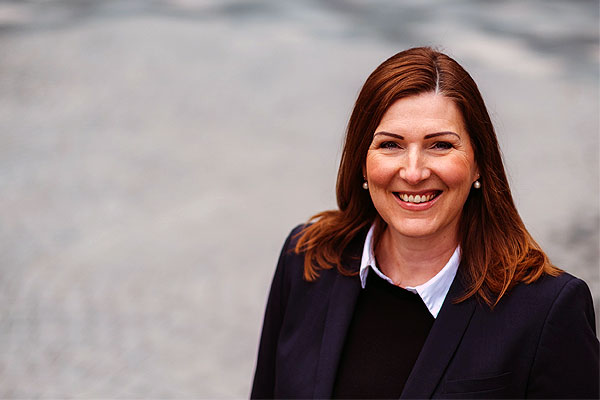
Anne Gretland, FotoWare CEO.
72% of respondents revealed that number of digital assets managed has grown. 48% see automation as a top priority in management of assets for 2021.
OSLO, NORWAY: FotoWare, a provider of Digital Asset Management (DAM) solutions, unveils the results of its research into the status and future of digital asset management to mark its 25-year anniversary.
FotoWare is a digital asset management solution for companies and individuals to manage, store and share large amounts of digital assets, such as images, videos, and documents, and works for the likes of TUI, the Nordic Travel and Leisure Group, and Wings of Support by KLM.
Key findings: the future of digital asset management
In the travel and tourism sector especially, digitising workload has been a major theme of the last 25 years. DAM software users have not only achieved fully digitised archives in many cases, but also enhanced their value by adding extensive metadata to images of destinations and accommodation. Although AI is not necessarily powerful and accurate enough in all cases to make it a benefit across the board, all travel or tourism sector respondents either had used AI and automated metadata successfully already, or thought that it would be important in the near future.
The research started by establishing the kind of digital assets respondents were managing. With the three main types being images (95%), Adobe CC files, such as AI and PSD (34%) and videos (30%).
72% of respondents revealed that the number of digital assets managed have grown over the past 12 months.
The key findings are that those managing digital assets, including marketing teams, picture desks, departmental custodians in travel and tourism, museums and heritage, retail, charity, and media and entertainment have many consistent challenges, revealed to be:
- Organizing digital assets (55%) – respondents cited the ability to organise and manage digital assets as the major challenge. With many managing thousands of assets (the highest figure mentioned was 170,000), there is a need for a system to process and access them quickly, especially as the amount of assets increases.
- Metadata governance (48%) – without strong metadata governance, many assets are hard to find and in danger of remaining unused, while others are published multiple times, especially among large collections. Respondents want to speed up the creation of metadata, as writing captions and keywords for all images extremely easily and quickly speeds up asset selection. Respondents also explained that many assets have small variations and good metadata is essential in finding the right version.
- Rights management and licensing (31%) – GDPR and copyright issues are a top challenge. Respondents are wary that all assets have the correct user rights’ information to protect their organisations and to be able to follow up on any theft of assets, on social media for instance. With only 66% of respondents using image rights the remaining respondents are leaving themselves open to prosecution. Rights are managed through a variety of methods, e.g. credits and expiry dates, GDPR information, transfer of IPTC copyrights into metadata fields, and documentation of purchased rights.
- Ability to share digital assets with multiple stakeholders (31%) – respondents were also concerned about the availability of assets, citing that all relevant departments, employees and external stakeholders should have easy access. A respondent from a major university stated that “with several photographers, we need one place to store the pictures for sharing and marketing.”
Alongside challenges, FotoWare also explored the main priorities for the next 12 months, and workflow automation, remote management and security topped the list:
- Workflow automation (48%) – the top priority is speeding up and simplifying the management of assets. With a growing influx of assets from different sources, respondents cite the need for workflows to automate repetitive tasks. For respondents working within diverse businesses with different users, easy to understand workflows are key, and enable users to standardise entries and save valuable time that can be used for other tasks. “Metadata automation will be a part of the new "digital" strategy, which we have to speed up now.”, said one user at a leading travel group.
- Enabling teams to access digital assets remotely (35%) – many organisations have changed their way of working since COVID-19 and this is reflected in priorities for 2020/2021. Having remote access to files is crucial when working from home and for disparate teams.
- Securing digital assets (35%) – allied to remote working, respondents see the need for strong security. 70% of respondents are actively protecting digital assets and fully aware of the importance of fundamental security measures, detailing strategies including mirrored backups, encryption access management, network segmentation, two-factor authentication and VPN management. Indeed 64% of respondents use Single Sign on (SSO). When selecting a DAM system, users are likely to upweight relevant experience in high-security applications (such as government and law enforcement asset management). One tourism sector respondent explained that the group has “strict firewall procedures, controlled/checked VPN setup and two-layer authorisation at login to the network.”
75% unsure of timescales for AI implementation
Surprisingly, while only 6% of respondents are already using AI to manage digital assets, all respondents plan to implement it. However, 75% are not sure when they would start to use it, while only 9% plan to introduce it in the next two years.
AI, ML (machine learning) and automations (workflows) using metadata will be important to the future of their business. However, what is seen today with AI is not able to serve all of the travel sector’s needs. 4% of respondents using AI are using it to recognise people, while other uses include recognising objects in images, signs and registering numbers, redacting faces, voice search, and dynamic content creation.
Integrations are a drive for higher ROI
Higher ROI is observed in relation to time used when working with large media files, especially with web-style API services and platforms, all of which are regularly updated with improvements, security fixes and new functionality. In all, 34% of respondents integrate digital asset management software with other solutions like CMS and publishing systems, and all found FotoWare’s well-documented API and extensive support library of existing integrations invaluable.
One travel sector respondent explained: “FotoWare is part of a "content-driven" digital publishing platform, I designed a long time ago. But, from today's speeded up 'digital networks', we will have to build new models for CMS and several APIs to other platforms.”
The survey polled those involved in managing digital assets, covering key customers in travel/tourism, archives/museums, media, charity, entertainment and retail sectors. These sectors have seen extensive change over the last 25 years, moving from traditional, highly manual archive processes to fully digitised, searchable systems, encountering common pain points along the way. These include the trials of internal Change Management and training on new systems, consistently managing multiple user groups across disparate locations, and ensuring that rights management is baked into the resulting processes and systems.
Anne Gretland, FotoWare CEO said: “It’s fascinating to see how the digital asset world has changed in 25 years since FotoWare started, while some key challenges have remained the same. The core need for having one place to organise all types of files to save time has not changed much, however new security regulations (such as GDPR) have certainly had an impact on innovation. Moreover, new types of technology such as automations via metadata have transformed our work day to be even more efficient.
“It is clear that the flexibility of cloud-based systems, especially those that can offer benefits of automated metadata, is key for any organisation working with media files today and will certainly have a huge impact in the future.”
Respondents were also asked about DAM use and those using FotoWare’s DAM solutions cited benefits of ease of sharing content, speeding up marketing campaigns, and higher ROI.
Vicky is the co-founder of TravelDailyNews Media Network where she is the Editor-in Chief. She is also responsible for the daily operation and the financial policy. She holds a Bachelor's degree in Tourism Business Administration from the Technical University of Athens and a Master in Business Administration (MBA) from the University of Wales.
She has many years of both academic and industrial experience within the travel industry. She has written/edited numerous articles in various tourism magazines.







































































































































































































